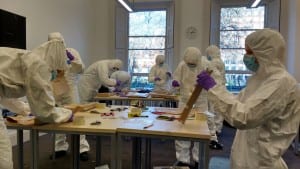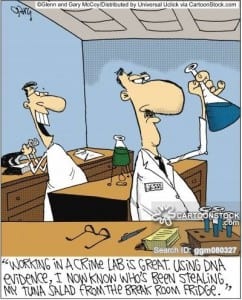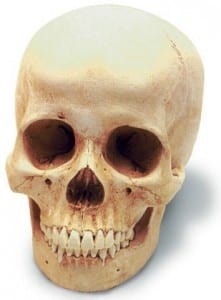My Master’s Dissertation: Secondary Transfer of Trace DNA
By uctzsh0, on 17 April 2016
One of the forefronts of forensic DNA research is the secondary transfer of trace DNA. Secondary transfer is an example of passive transfer and occurs when one person’s DNA is deposited onto an object by someone (or something) else. Trace DNA is usually found in small amounts from sources such as skin cells which are deposited on an object after it has been touched or casually handled. If this object becomes evidence in a criminal investigation, the possibility of placing an innocent individual at the crime scene arises. The occurrence of secondary transfer of trace DNA has only come to light in the last several years and so there is currently not much known about it. The study I have proposed for my dissertation will evaluate if relative pressure of contact has any effect on the transfer of trace DNA. Knowing this will reveal what factors are required for secondary transfer to happen, and help uncover its relevance in a forensic context.
Forensic DNA technology has progressed to the point where genetic profiles can be generated from samples where only a few cells are present. For this reason, steps have to be taken to prevent any contamination of the samples. The research undertaken by the UCL Centre for Forensic Science is carried out in the collaborative UCL division of Biosciences, UCL CFS and UCL Institute of Archaeology Ancient DNA facility. The ultra-clean lab provides a safe and contamination-free space to extract the DNA from the low-template samples of trace DNA.
As the use of DNA in forensic science continues to expand, the need for scientific literature on the subject will only grow as well. The occurrence of secondary DNA transfer is on the leading-edge of forensic biology research; therefore, my ultimate goal is to create a publishable study that will contribute to the field of forensic DNA research in a beneficial way.
 Close
Close





